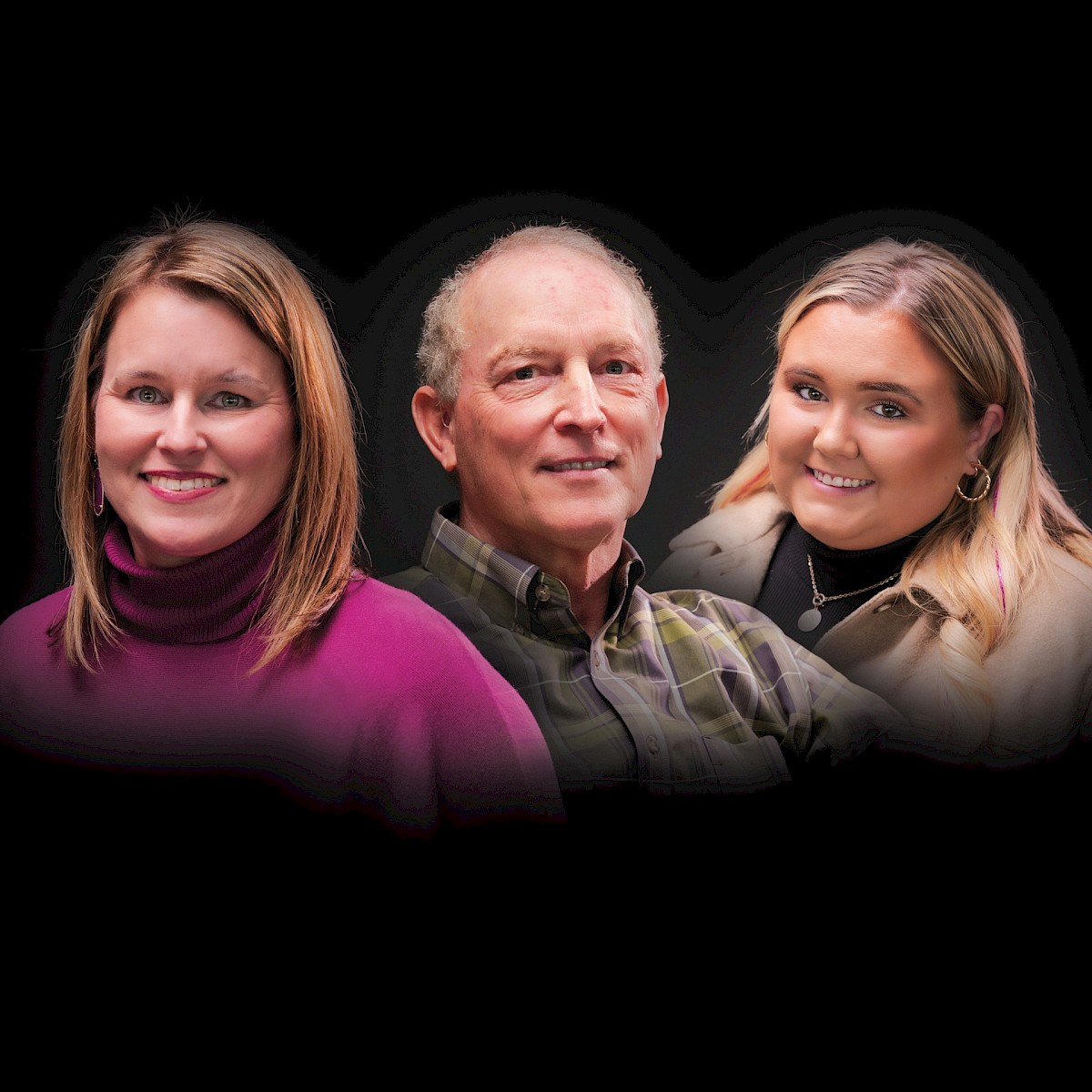Hidden in Plain Sight
My six-year-old loves to play hide and seek. I was never a fan of the game as a child because I despised the heart-racing feeling of wondering if they would find me in my dark hiding place. Maybe it was because I have never liked feeling anxious or out of control. I preferred being the seeker in the light rather than the one silently waiting alone in the dark. As an adult, however, when life is no longer a game and after having lived through heartaches and life experiences that have brought me to my knees, I now recognize my default mode is hiding. Honestly, it seems much easier to hide behind a smile or appear to have it all together in my family’s “perfect” Facebook picture rather than allow people to see the real, raw emotions and moments of life. It has taken my small circle of strong and dependable friends and family, who pursue me and care enough to ask the deeper questions, to help me peel back the layers.
If we are not honest with ourselves and our close circle of support, anxiety can be a silent struggle that can lead to isolation, depression and other mental health issues. According to Billy Eldridge of Olive Tree Counseling, approximately 35% of his clients seek counseling because of anxiety. “Anxiety disorders are the most prevalent of all psychiatric disorders,” Eldridge stated.
Simply talking about anxiety might make you want to turn the page and skip it. Don’t worry; it stepped on my toes at first. But, through the following stories of three brave individuals who have faced anxiety head on, you will be empowered and encouraged as you discover how they have dealt with their anxiety and how they are actively overcoming it today.
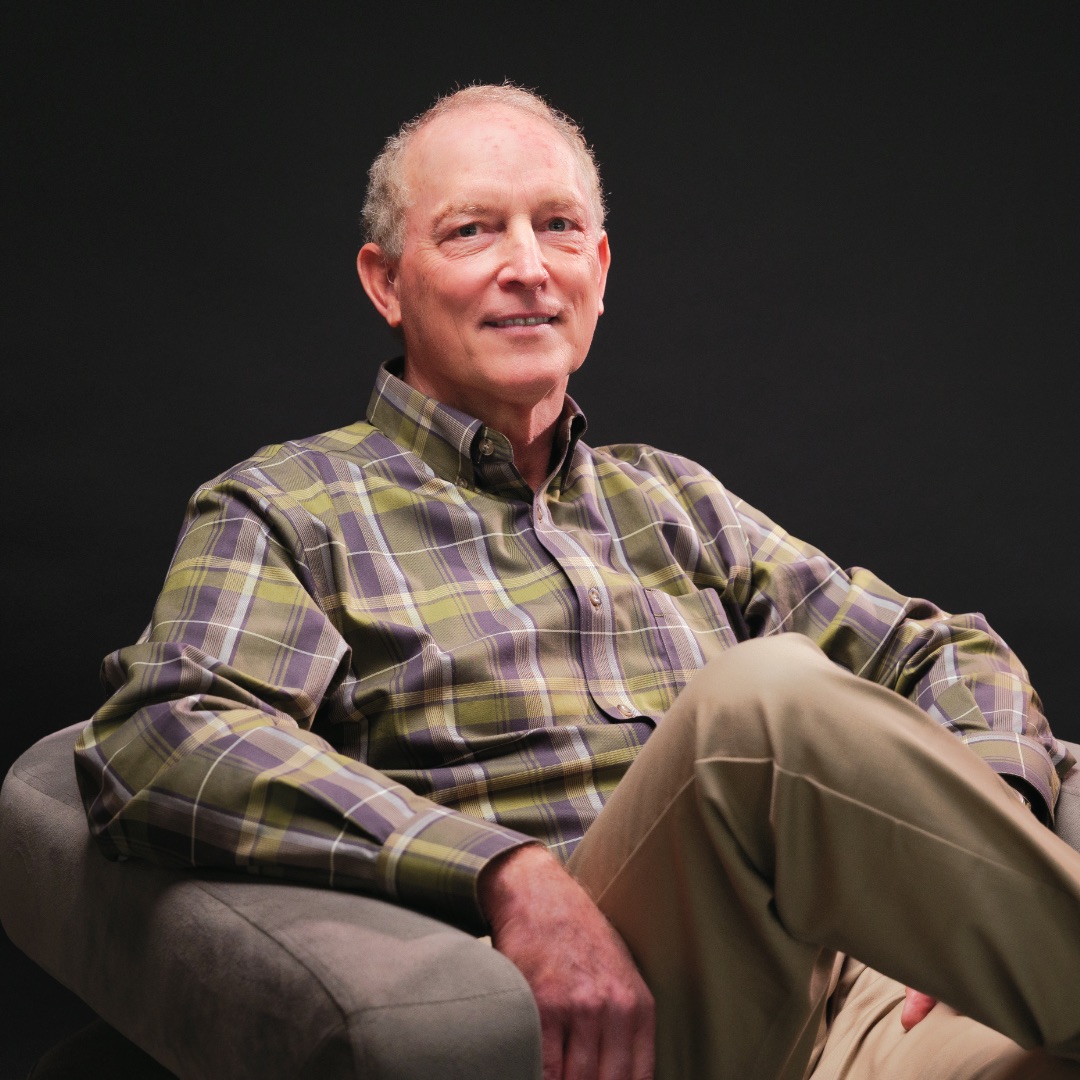
I could not trust my feelings because my feelings told me I was about to die. It was like I was on the top of a building and I was leaning over the edge and someone had me by the shirt collar. I didn’t know if they would let me go or not.” —John Miller
JOHN MILLER
John Miller and his wife, LaNell, have been pastors at Church on the Rock for 32 years. As Lead Pastor, Miller is not a stranger to the spotlight. He endeavors to use his position as an opportunity to share his testimony of God’s strength in his weakness, and God’s purpose in his pain.
“The start of anxiety in my life came after my wife’s diagnosis with breast cancer,” Miller explained. “It was a huge blur for about ten days and, remarkably, I did great. LaNell had plenty of friends supporting her and taking her to appointments, and I continued to function in my role at church as normal. I remember even after the diagnosis, I was working 55-60 hours a week, six days a week. When she got on the other side, it was like a delayed stress-syndrome type of thing. I was preaching one Sunday morning about a year later, and after church, I started sweating and having heart palpitations. They took me to the hospital, where they almost apologetically told me they couldn’t find anything wrong. That is how my anxiety started, and it was a big pause in my life.”
Miller explained that we all can get anxious, but there is a distinction between regular nerves and clinical anxiety.
“Anxiety can be a good thing. It’s how God created us to cope with life. But it can become worse, and it became worse for me. I started having panic attacks, and I passed out several times in restaurants after church for no reason. That set me on a journey for an answer. Clearly, my relationship with God was impacted,
and I sought His help through it. But in the natural part of my life, I literally could not function. I had pushed myself to the edge. We took three months off and got out of town, and it still didn’t help. There was nothing I could do to find peace—nothing to help me take a deep breath and just feel normal again. It was like the chemicals in my brain, physiologically, got tangled.”
Miller took the next steps and saw a Christian counselor and psychologist, along with medical professionals.
“I had a wonderful Christian counselor who was very direct with me. He said, ‘You can’t just take a pill and make this go away. You’re going to have to fight this on your own as well, psychologically.’ So, it is using all the resources that really help me even today. I take medications, I pray, I do it all to make it and to cope. Depending on the level of anxiety, it determines how much you need to do. I think most anxiety can be handled through our relationship with God. But if there are chemical issues in your body that are making it difficult, then you’ve got to go another step and get medical care.”
When asked to identify what the greatest help was to him during his darkest days, he confidently replied, “I could not have made it the last few years without my faith in God. I wish the anxiety would just go away. Even to this day I have struggles. But I found a depth in my relationship with God, and I’m relying on Him more today than I ever have in my entire life. I learned to not depend on myself. I could not trust my feelings because my feelings told me I was about to die. It was like I was on the top of a building and I was leaning over the edge and someone had me by the shirt collar. I didn’t know if they would let me go or not. But I remember God saying to me, not audibly out loud, but deep inside, ‘I will catch you. And when you return, strengthen the brethren.’ God has used this crisis in my life to help people. I have accomplished more for God’s kingdom on this side of the struggle than I ever did before. It’s like He has super-charged me.”
His final thoughts to anyone struggling with anxiety were powerfully simple, “Reach out to God. You can make it,” Miller assured. “The same God who helped me is the same God who can help you. He gave His Son, Jesus, to give you new life in Him. If He loved you that much, to give His own Son, He also loves you enough to help you through. It may not go away in an instant, but you can win this battle with God’s help.”
Listening to his story, I had a flashback to the summer before eighth grade and the car ride home from my grandmother’s house when my mom told me she had been diagnosed with Multiple Myeloma, a bone cancer. I wish my 13-year-old self could have heard Pastor John’s words at that moment, but instead I bottled up my fears and thought I had to be strong in my own strength. Years passed, but the fear of losing someone close to me did not. Although life and death are a reality, not having control of when I’d lose people I loved was terrifying.

Chris Schroeder, Counseling Pastor at First Baptist Church Texarkana, holds a Masters of Pastoral Counseling Degree from Liberty University and is currently pursuing a Doctorate in Pastoral Counseling.
I do not think there is as much of a stigma today for Christians in reaching out for mental health help as there was in the past. Reaching out for help is not viewed as much today as a lack of faith. The christian church is still behind but growing in its understanding of mental health issues.
The negative statements spoken, and lock downs implemented during the pandemic caused a great increase of individual anxiety in our society. Unfortunately, COVID has caused a great amount of sickness, loss, grief, depression and anxiety. We, as humans, were not created to live in a society full of fear. We were created to live in health and in community with one another, not in isolation.
I have several action steps to encourage people who are struggling with anxiety.
- Help the individual change thought patterns. It is important to dispute negative thoughts and lies with the truth of scripture. Philippians 4:4-8 and Matthew 6:25-34 are great Bible passages I refer to often.
- Encourage the individual to focus on God. God wants us to trust and relinquish all fears to Him, especially through prayer. I believe anyone can experience peace.
- Watch for triggers which lead to anxiety. I assist the person in trying to minimize activities and input that induce anxiety.
- Fourth, I encourage the person to move forward and take careful steps to face fears. I do not want them to be trapped by internal feelings of anxiety.
- Assist the person in finding and developing relationships that are supportive and positive.
- Encourage the individual to be patient. Growth takes time.
- Focus on personal physical health. Proper diet and exercise are important for fighting anxiety. Also, necessary medication can be important for fighting anxiety.
I encourage all people to choose the best life possible. I do not want people to feel ashamed for feeling anxious. I want people to have hope and know that there are people who care and want to help. I believe that help comes from the physical, spiritual, emotional and relational components of an individual.
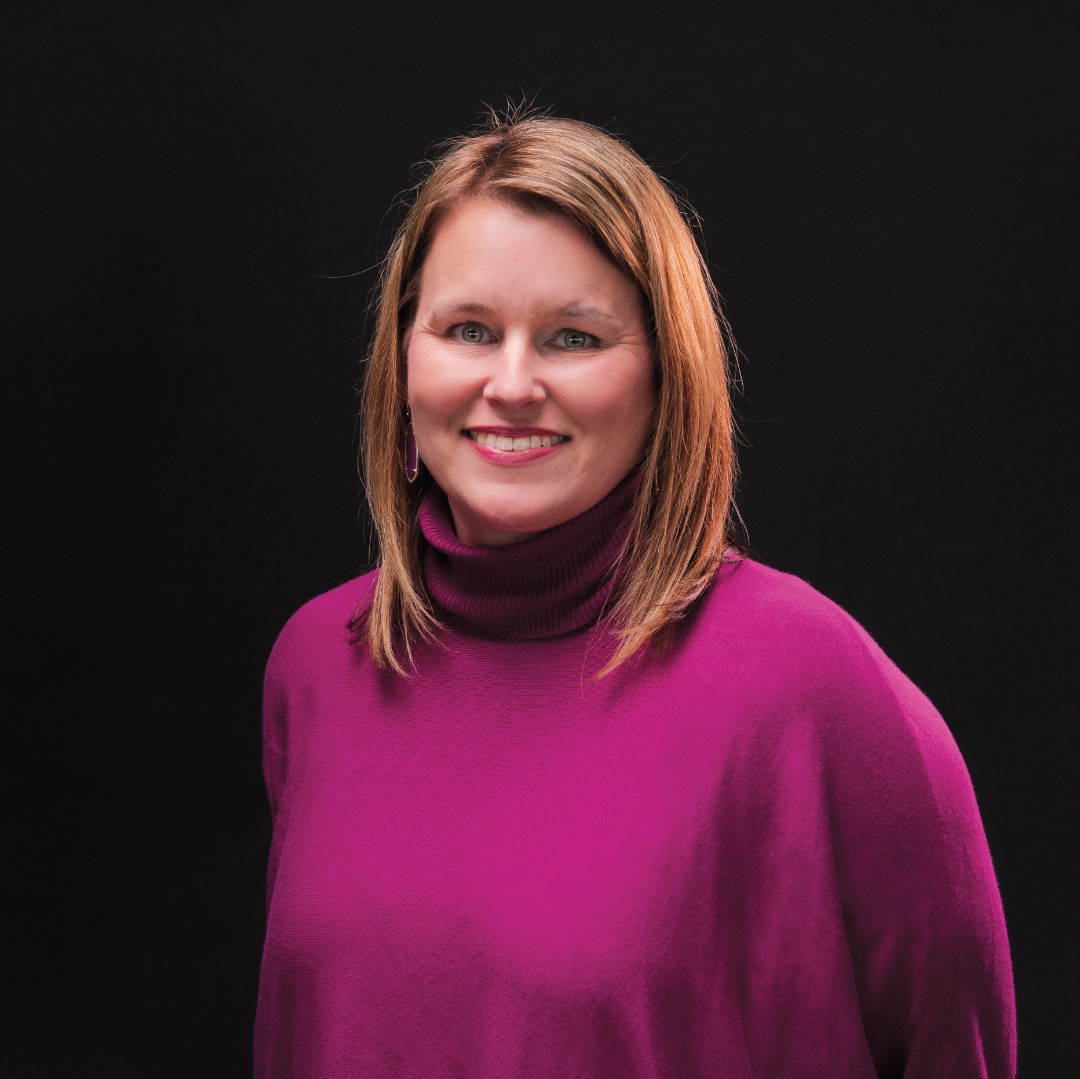
Anxiety is like a pot of boiling water. You have to take the lid off and remove it from the heat or it will overflow and leave you feeling helpless. Let your faith overcome your fear.” —Allison Thomas
ALLISON THOMAS
Over the last decade, my husband Brad and I experienced loss together through four miscarriages, but we now have four healthy boys under our roof to protect and love. I had an immediate connection with my youngest son’s preschool teacher, Allison Thomas, especially when she shared she also had four boys—Wyatt (22), Hunter (21), Parker (19) and Matthew (16). However, I realized when she shared a photo on Facebook of her family standing in front of two tiny gravestones that two of her boys are in Heaven.
“When my husband, Will, and I were pregnant with our first son, Wyatt,” Allison explained, “we were excited like any normal, first-time parents. The obstetric countdown had ended, and I had finally reached 40 weeks. I attended this appointment alone because it was supposed to be just a normal check-up. However, when the nurse called me back to the room and put the Doppler on to check for a fetal heartbeat, there was not one. She brought a new Doppler machine in and a more experienced nurse, only to get the same result. This was the moment that would change my world forever. This was the moment I knew that my baby was gone.”
“I remember jumping off the table after the nurses left to get the doctor. I grabbed the telephone receiver off the wall, dialed my husband’s cell number, and waited for him to pick up. The moment I heard his voice, I began to yell, ‘HE’S DEAD!’ By the time I left the examining room and headed down the hall to the doctor’s office, my husband was walking in. I remember collapsing in his arms. I wanted to die that day and keep my baby with me forever. Little did I know, this hell and anguish would endure for the next five days. I would have to carry my dead child in utero until my body decided it was time to give him up.” Five days passed, and labor did not come, so Allison had to have a C-section. “He was born beautiful and perfect,” she said. “We still don’t know why God chose for Wyatt to live with Him for the rest of his life.”
“Then three months later we got pregnant with Hunter, and he chose to come into this world in a blaze of glory at 24 weeks (gestation). He was only two pounds and lived in the NICU (Neonatal Intensive Care Unit) for four and a half months. He was on a respirator and had to have a trach (tracheostomy tube). One terrible day the nurse did a normal trach change like she did every day, and for reasons we don’t know, he went into respiratory distress. After half an hour of CPR, they were able to get a heartbeat. Unfortunately, the respiratory distress caused brain damage, and we were told he was brain dead. So, after 72 hours, we had to make the decision to say goodbye and take him off life support. My husband was so brave. When they took Hunter off the machine, Will rocked him until he went to be with Jesus. That’s how our story began.”
Imagine with me the silence of the room after Allison finished this portion of her story. All of us were frozen, only moving to wipe away tears. I miscarried my pregnancies in the early weeks, but Will and Allison got to hold their babies, kiss their cheeks and count all their beautiful fingers and toes. As a mom, she experienced one of my greatest fears, losing the precious little people I had brought into this world. I could not imagine the difficulties of moving on from those experiences.
Allison continued, “The first word that comes to mind when asked to describe my next two pregnancies with Parker and Matthew is FEAR. I couldn’t allow myself to feel excitement or joy. All I could think was, ‘What if they die too?’ Once they were born, the fear grew, and it was stronger. I now had a personal relationship with them. They were alive on earth, so the thought of losing them was even more frightening. I chose to be a stay-at-home mother so I could always be with them. I was their Sunday school teacher, scout leader, room mother. My theory was that nothing could ever happen to them as long as I was with them. I was their protector. When they reached 15, that was a whole other level of anxiety. I remember pulling in my driveway one day as a truck was pulling out. I asked my husband who that was, and he said, ‘Parker just left with some friends to go to a movie.’ I literally had an anxiety attack standing in the driveway. I wanted to run down the road chasing after the truck. I was the driver. I kept Parker alive by protecting him. The fear of loss came back up with a vengeance. I had to ‘get my mind right.’ I often say this to my boys. They both know how I lost their brothers, and I am very real in expressing my experience as well as my fears and anxiety that come with that loss. I told them they would have to have patience with me. I knew they had to grow up and have more freedom. I would give them that, but they would also have to allow me time to ‘get my mind right.’ We made a deal; first it was a 24-hour advance notice of their plans, and then as time went by, the advance notice requirement went away. But man, it was so hard letting go.”
To think that this strong, beautiful woman has dealt with as much loss as she has and continues to battle daily with the anxiety and “what-ifs” baffles me, as each morning I drop my youngest off in her four-year-old class at Williams School. Her classroom is the happiest, most joyful room I have ever stepped foot in, and the smile on her face and joy she exudes daily is genuine. “Wyatt and Hunter sit beside God and watch me every day. I want them to be proud of me and say, ‘Look at my mom, she’s a rockstar.’ Now, every day I pour into these precious kids at school, and we are a family. I will protect them like they are my own, and through them, I get little ‘God-winks’ each day. I do my best to make my sons proud.”
She closed by saying through her tears that “grief, loss and the anxiety that follows is a constant journey. I still have ‘first experiences’ waiting for me in years to come. The year they should graduate college, the year they should be married, birthdays, etc. It never ends. Again, you have to stop and ‘get your mind right.’ Anxiety is like a pot of boiling water. You have to take the lid off and remove it from the heat or it will overflow and leave you feeling helpless. Let your faith overcome your fear. Open your heart and your mind to finding your purpose through the loss. Your purpose may bring you to a whole new direction within your journey. I know it has for me. He chose me to go through this loss so that I can help others through it.”
Allison is such an inspiration in finding a purpose through her loss by helping others. Like the picture of her infants’ gravestones she posted on Facebook, she has used that platform to let other mothers know they are not alone.
I wish I could say I share on social media my struggles and the realities of my life as bravely and boldly as Allison Thomas. For some, it’s a means of healing. But for others, social media itself can trigger anxiety simply from the pressure one can feel to portray the “perfect life.”
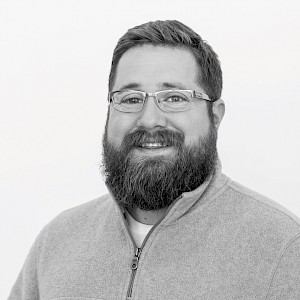
Billy Eldridge, MS, LPC, NCC, provides many services, but primarily sees clients coping with relationships, spirituality and/or addiction. He also provides counseling for adolescents.
What percentage of your counseling clients come for counseling due to anxiety?
Approximately 35%. Anxiety disorders are the most prevalent of all psychiatric disorders, and are associated with a high level of associated illness.
The five major types of anxiety disorders are:
- Generalized Anxiety Disorder
- Obsessive Compulsive Disorder
- Panic Disorder
- Post Traumatic Stress Disorder
What do you typically see as the greatest triggers and greatest help for anxiety in people?
Triggers are unique to the individual and type of anxiety disorder. As far as help, Cognitive Behavioral Therapy is the most commonly used evidence based treatment available for anxiety. There are newer treatments available especially in the area of trauma related anxiety that are providing hope for those whom traditional methods have not provided relief.
Is there a harm in someone going to a walk-in clinic for an anti-anxiety prescription instead of having a treatment plan created by a psychiatrist or their primary care physician?
Anxiety and panic attacks create an immense amount of suffering. I would never fault someone for seeking relief. A walk-in clinic can provide acute care. With that being said they are not set up for ongoing treatment. The best option for ongoing treatment would be a mental health professional who specializes in treatment of anxiety disorders. Based on an assessment there could be a need for a referral to a psychiatrist for added medical intervention.
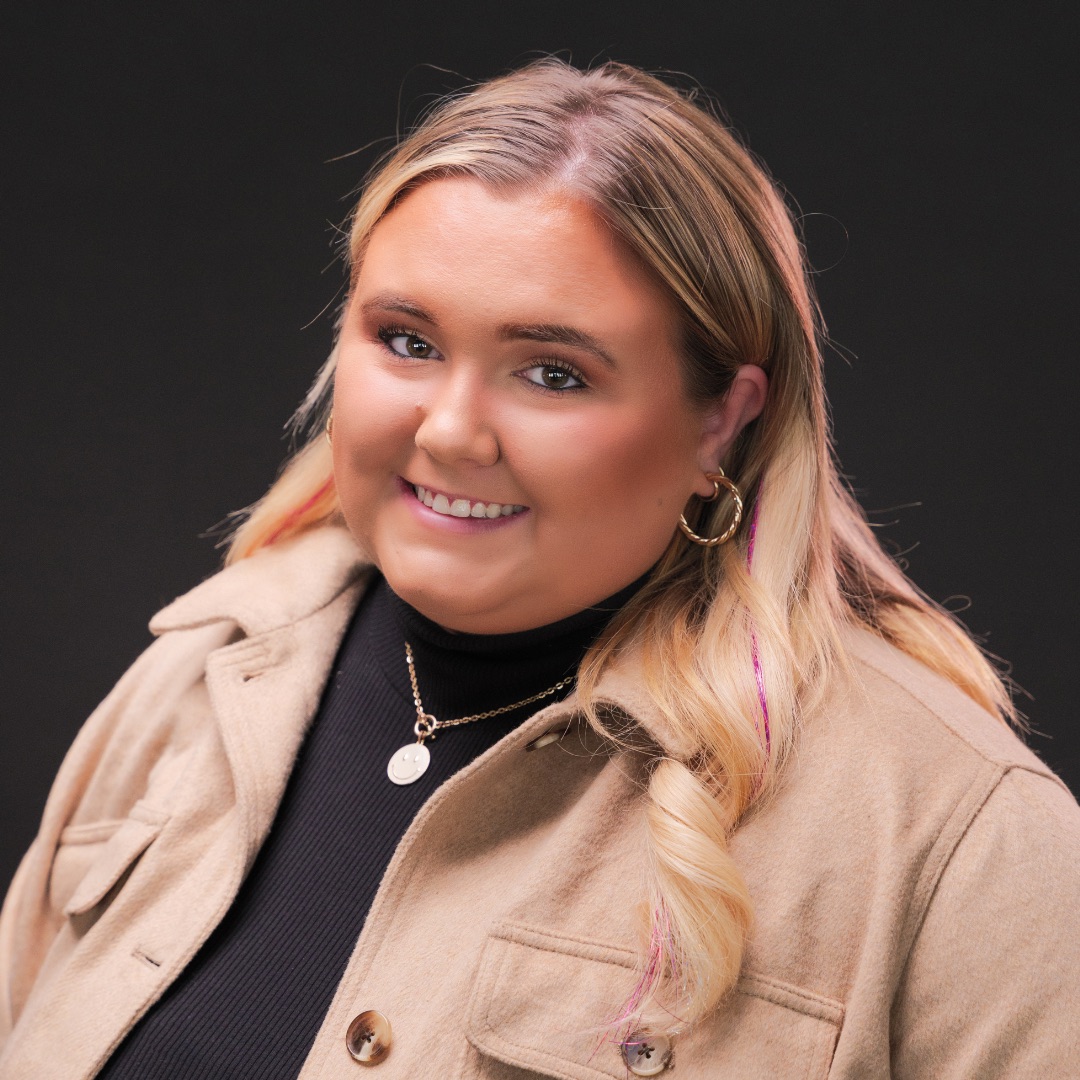
Social media plays a big factor in my anxiety. There is so much pressure to keep up with what everyone else is doing and achieving in life.” —Lindsey Simmons
LINDSEY SIMMONS
“I’m 22 years old, and social media plays a big factor in my anxiety,” said Lindsey Simmons. “There is so much pressure to keep up with what everyone else is doing and achieving in life—going to college, getting a certain job, being who your parents want you to be and not who you actually want to be. And the pressure of looking your best in every picture can make you feel judged if you’re too big or too small. Sometimes I even feel like I’m not good enough because you see people who you think have the ‘perfect life’ or the ‘perfect family’ when, in reality, no one’s life is perfect.”
I agree with Lindsey. If you look at my profile on Facebook or Instagram, you may think that I have the “perfect life.” I’ve been told that a time or two by people who do not really know the nitty-gritty parts of my life. But behind every smile, there is a story. You may not have known how cancer affected my family, or that I had miscarriages, or that I have to keep in check my thoughts when they start to spiral due to social media.
Each of us has things that can lead to anxiety. Most of us have struggles hidden in plain sight, masked by a smile, all while feeling our internal struggles should be ours alone. Take a step and start by putting into practice just one piece of advice from the stories above. Whether through your relationship with God, a strong support system, medical help, or all the above, you do not have to hide anymore.
If you choose a clinical route, Billy Eldridge advises to start with a licensed counselor. “The best option for ongoing treatment would be a mental health professional who specializes in the treatment of anxiety disorders,” he said. “Based on an assessment, there could be a need for a referral to a psychiatrist for added medical intervention.”
Whatever your story is, there is hope for you. These brave souls, in spite of their battles with anxiety, are hopeful. They are looking forward and not backward at an amazing year ahead, and our hope is that you can as well.
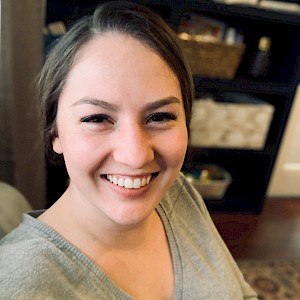
Wesley Goodson, LPC, counsels individuals, children, adolescents and families on a variety of issues ranging from behavioral concerns, anxiety, depression, trauma and relationship issues.
How do you feel the of the last couple of years have affected the mental health of school-age children? Have anxiety levels increased?
I believe the mandates have affected children in a multitude of ways. In my own practice, I have seen an increase in children struggling with separation anxiety from their parents. Children have been struggling at drop off or wanting to be more isolated at home. I also believe it has impacted their social development. When we were in lockdown, children did not get to go to school, therefore missed the exposure of other children their own age as well as the structure the classroom provides. In my opinion, the mandates have also affected children’s self-esteem. Children and parents were trying to navigate learning virtually while also maintaining a sane household, which led to some children not being on grade level. Now that the children are back in school, children are frustrated and struggle internally with feeling inadequate.
How is treating a child with anxiety different from treating adults?
Treating anxiety in adults and children has some similarities. However, unlike adults, children have not developed the ability to verbalize their emotions and anxieties. The emotional education piece is very important when treating anxiety in children. I believe in the saying, “you have to name it to tame it.” If children are given the tools to identify their emotions, they will be able to gain control of their anxiety.
What are some signs of anxiety in children?
Anxiety can appear in many different forms, in my opinion. The most common behaviors are irritability, (becoming) socially withdrawn, needing control over their environment or having perfectionistic tendencies. Physiologically, children may complain about headaches or an upset stomach.
What is “normal” vs. when should a parent reach out for help if their child is struggling?
I believe some anxiety is a very normal and natural response to situations, for example, the first day of school or meeting new people. However, when it starts to disrupt the child’s day-to-day function, then I would recommend seeking professional help. I think it is important for parents to know that counseling does not have to be a long-term thing.
What is your best advice for parents with children who seem to be anxious?
I am a firm believer in parent-child attachment and the importance of building a child’s self-esteem to help with anxiety. Reading books with your child increases attachment because it is one-on-one time as well as an educational opportunity. I would suggest reading books about characters being brave, emotions,or situational books such as not being afraid of the dark or first day of school jitters. The more a parent can identify and normalize the emotions their child is feeling, the more their self-esteem continues to build.

